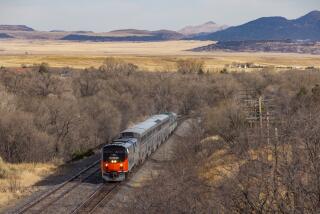For views of the Rockies you can’t see any other way, ride Amtrak’s Zephyr
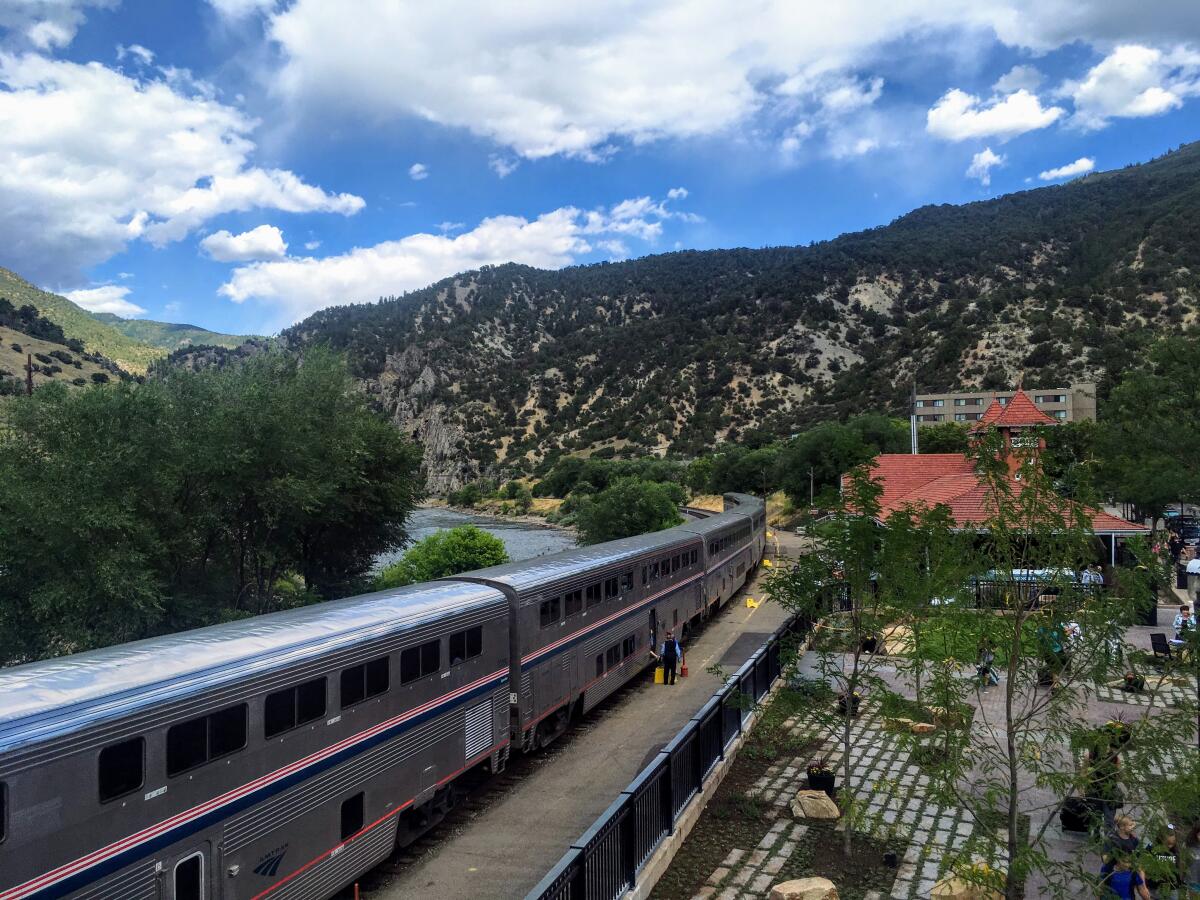
DENVER — “Welcome to Moooooon River,” the conductor announced as our train curved into a canyon running parallel to the Colorado River. I quickly realized what he meant; as we rode alongside the Colorado River, our train was mooned by countless whitewater rafters — athletic young men, families of four and retired couples.
“Moon River” was just one of the surprises aboard the California Zephyr, an Amtrak train that runs from Chicago to Emeryville, Calif., a more than 2,000-mile journey that takes passengers through the Rockies and the Sierra as well as the lonely Utah desert. During our September trip — the Denver-Salt Lake City leg — we enjoyed long, sunny days aboard the Zephyr. If you were to go now, you might be treated to views of the Rockies dusted in an early snow.
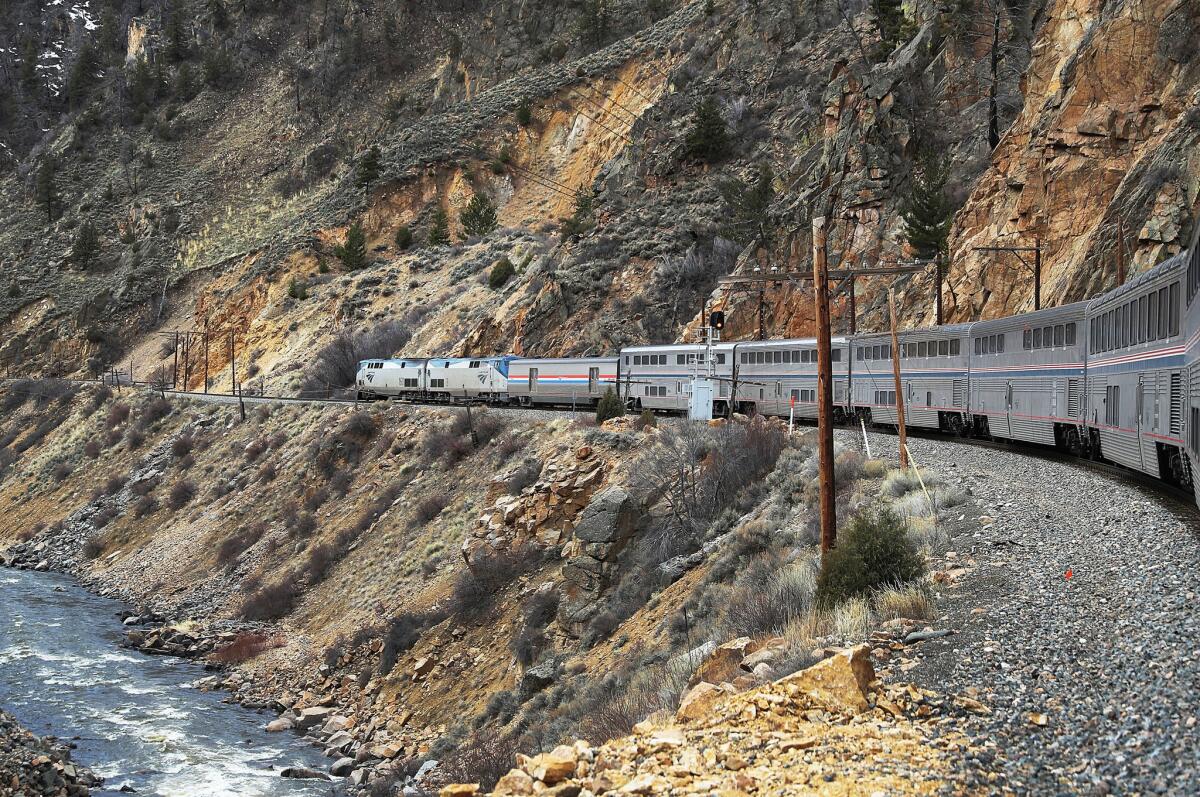
Earlier that day, my friend Erica and I boarded the California Zephyr in Denver, eager to spend our three-day Labor Day weekend experiencing our first “train-cation,” as one passenger called the ride. As two restless 20-somethings anxious about being cooped up on a train for 15 hours, we budgeted in an overnight stop in Glenwood Springs, Colo., to break up the trip.
Upon boarding, passengers, predictably, made a mad dash to the observation car, where windows stretched nearly from the carpet to the ceiling. Although we initially were disappointed we didn’t score one of the observation-car seats, we needn’t have been concerned. As the train began ascending into the Rocky Mountains, we found two seats next to a young couple from Iowa, who had been riding the Zephyr since Chicago. After they finished their cribbage game, they left, along with several other passengers, leaving the car to us and a few other people.
Our patience was rewarded with breathtaking views of the Rockies, some of which you can see only by train.
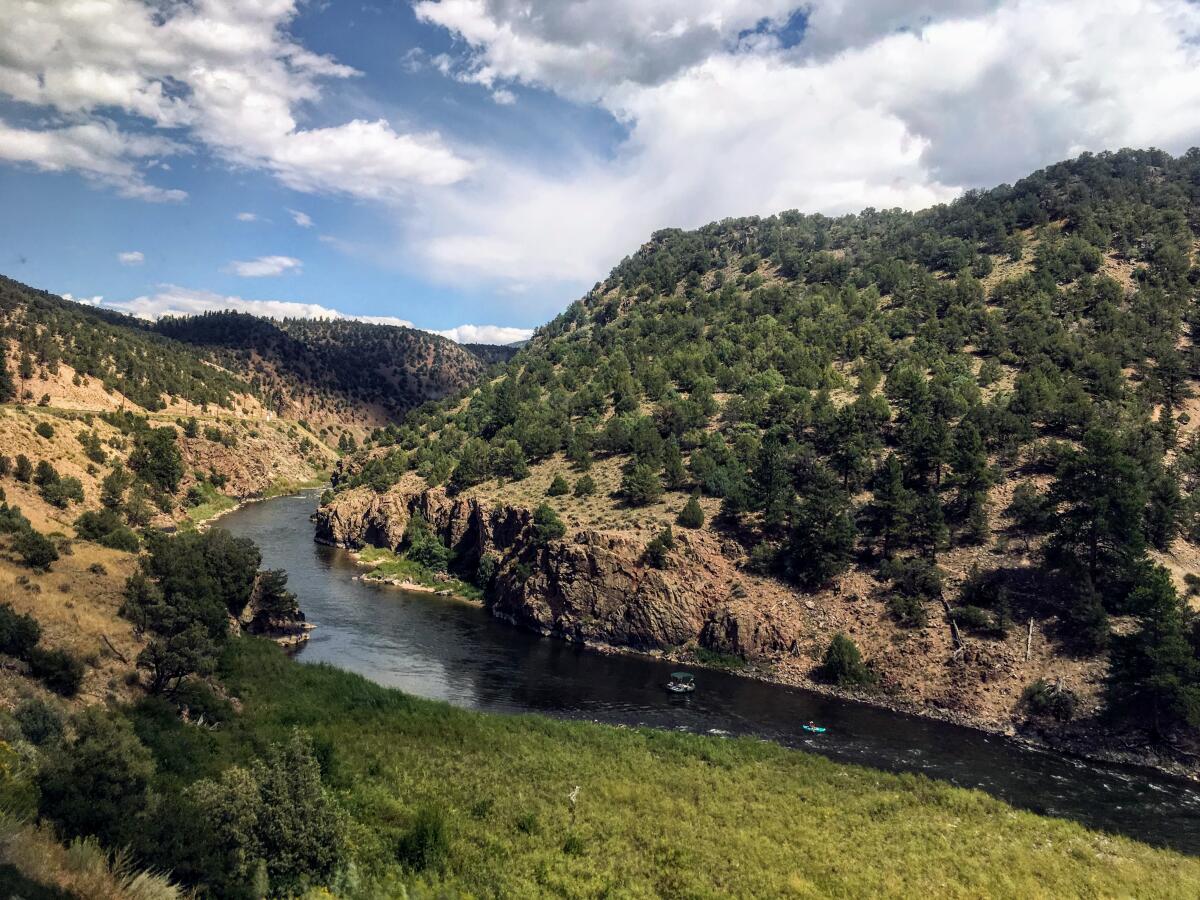
After settling into the observation car, we treated ourselves to Bloody Marys. Our expectations were set relatively low, but oh, how wrong we were. Drinking a tangy Bloody Mary while gasping at the cliffs and crags of the Rocky Mountains was full sensory overload.
Getting the chance to talk with Darrell Bennett, a bartender aboard the Zephyr for 15 years, was another benefit of ordering drinks. He shared some insider tips, including where passengers can see an eagle’s nest filled with chicks, all the while extolling the virtues of rail travel. “It’s the most civilized way to travel, that’s for sure,” Bennett said.
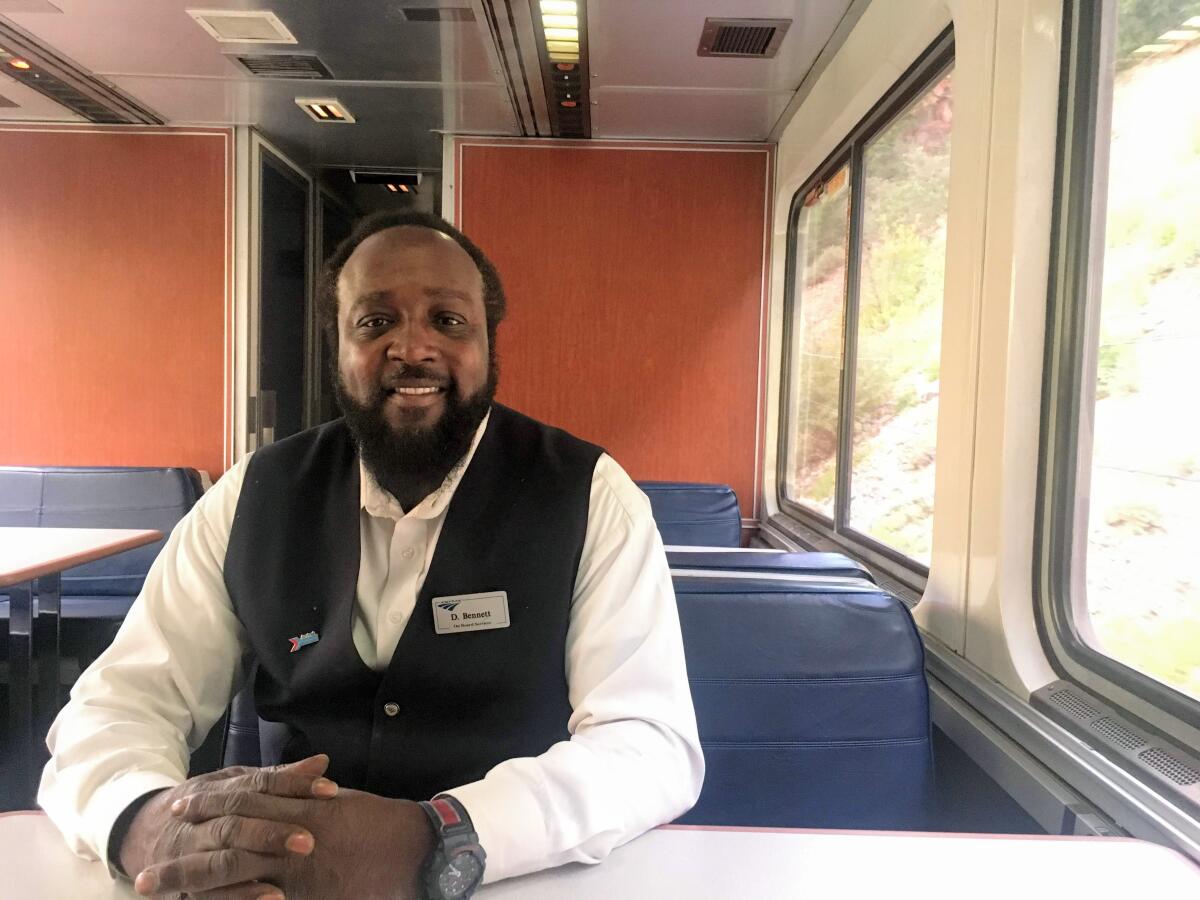
I came to understand what he meant; on other modes of transportation, movement and contact with passengers is kept at a minimum, but Zephyr passengers have the freedom to walk around and talk to one another.
I started keeping a list of our fellow passengers. Marlene and Barbara, a mother and daughter on vacation, were headed for Sacramento from Chicago. David and his dog, Millie, a pint-sized mutt, boarded with us in Denver on their way to visit friends in Aspen, Colo., a 41-mile drive from the Amtrak station in Glenwood Springs.
And then there was Bart, an 84-year-old who has ridden the Zephyr from Glenwood Springs to Emeryville 95 times. Looking for tips, I asked Bart about his favorite part of the journey. “The whole damn thing,” he replied.
The six hours from Denver to Glenwood Springs passed in a flash, between our ooh-ing and aah-ing over the scenery and cheerful conversations with fellow passengers. A ride from Denver to Salt Lake City would have been no hardship; time passes by in a pleasant haze aboard the Zephyr. Even still, a stop overnight in Glenwood Springs, a gem of a resort community, provides visitors with a chance to further soak in the beauty of the Rockies.
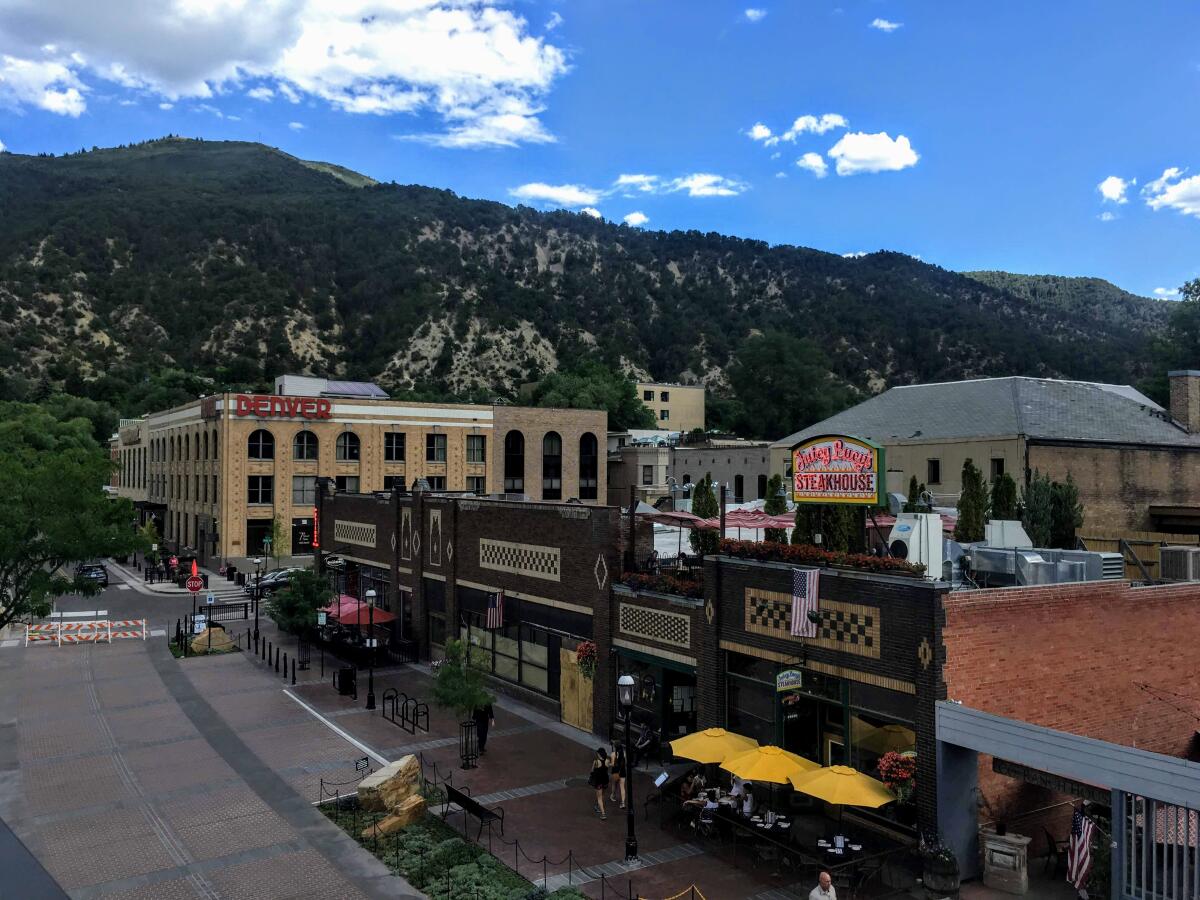
Glenwood Springs, a town of about 10,000, is known for its natural hot springs, which in 1887 attracted Doc Holliday, who was suffering from tuberculosis. The dentist, gambler and occasional gunfighter eventually succumbed to his illness in Glenwood Springs, and visitors today can take a short hike up to a cemetery where he’s thought to have been buried. (The cemetery was privately owned and, over the years, records of the actual burial site were lost.) It’s not just for history buffs; visitors are rewarded with sweeping views of Glenwood Springs and the surrounding mountains.
That’s just the start of the hiking possibilities. A few miles up the Colorado River is the trail to Hanging Lake, a turquoise body of water perched high in White River National Forest. For a less-than-three-mile round-trip trek, the elevation gain makes the hike strenuous. Take your time to adjust to the altitude, about 7,000 feet; it’s worth it for a glimpse of Hanging Lake’s preternatural waters. Before your trip, reserve a hiking permit, which can be accessed online or picked up at the Hanging Lake Welcome Center. Only 615 permits are issued to hikers per day.
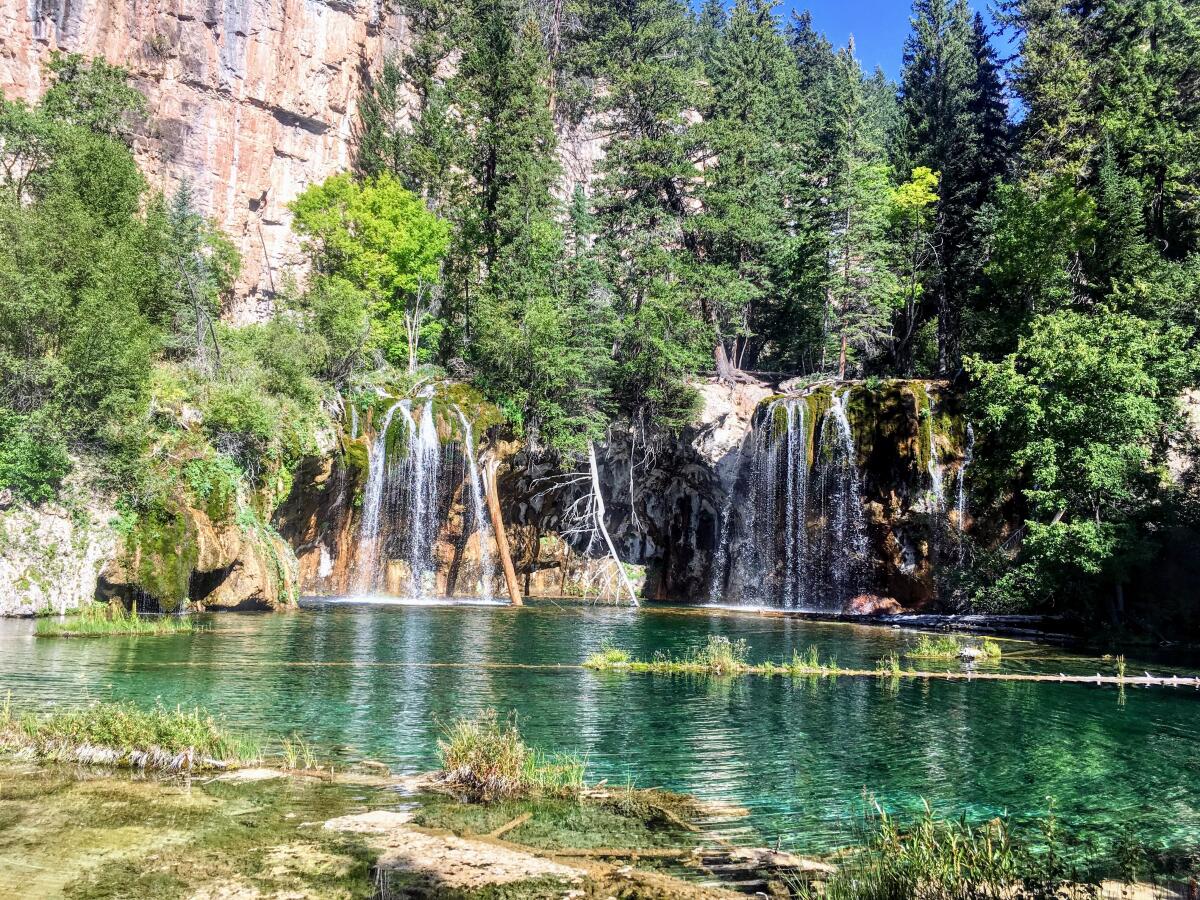
After hiking, unwind at one of Glenwood Springs’ hot springs. In need of some relaxation after our morning of train travel, Erica and I chose Iron Mountain Hot Springs, whose 16 geothermal soaking pools overlook the Colorado River. Families with children might prefer Glenwood Hot Springs Resort, with its water slides and splash pools. Whichever you choose, your trail-weary muscles will thank you for a few hours of restoration.
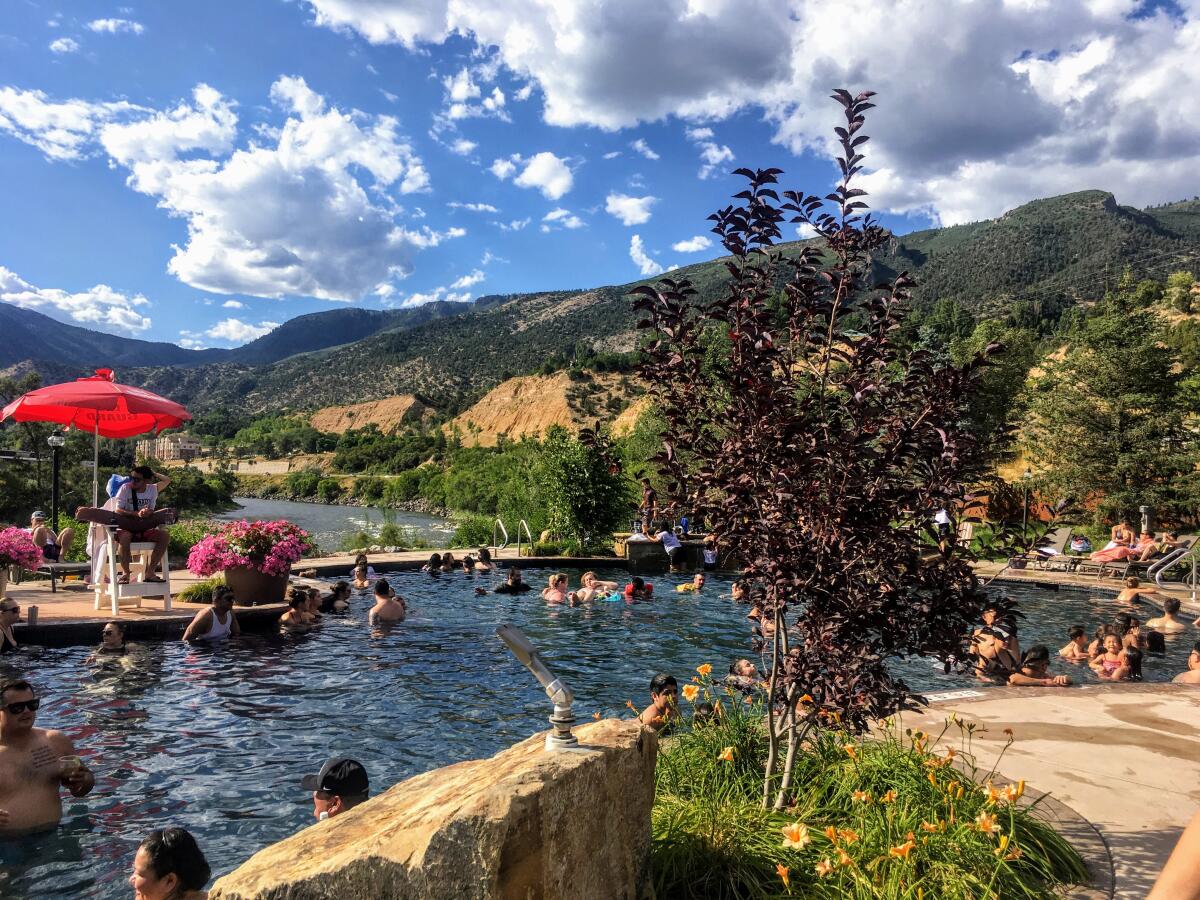
Still need relaxation? Glenwood Springs Brew Garden can assist as well. The indoor-outdoor space has more local flavor h than touristy bars such as Doc Holliday’s Saloon across the bridge. An hour or two before embarking on the next leg of our train trip, we had a few local beers and enjoyed music from a Celtic band performing on the patio.
And then it was time to reboard the Zephyr, now bound for Salt Lake City.
Onward we rode for nine more hours, watching the Rockies fade into desert. Stops were few, though we had the chance to pick up some peaches and postcards at the Grand Junction, Colo., station before crossing into Utah. We were once again lulled into happy complacency aboard the train, content to watch wide, largely uninhabited swaths of America roll on by and the sun slip over the horizon.
Even after darkness had enveloped the Zephyr, we had a long way to go until Salt Lake City. But at 11 p.m., when we stepped off the train, I felt a pang of regret. The Zephyr would continue on through Truckee, Calif., carving its way through the Sierra, all the way to the Bay Area, and we wouldn’t be there to see it.
But thinking about our new friend Bart, the octogenarian who has ridden the Zephyr nearly 100 times, provided some consolation: For those who fall in love with rail travel, there’s always another ride.
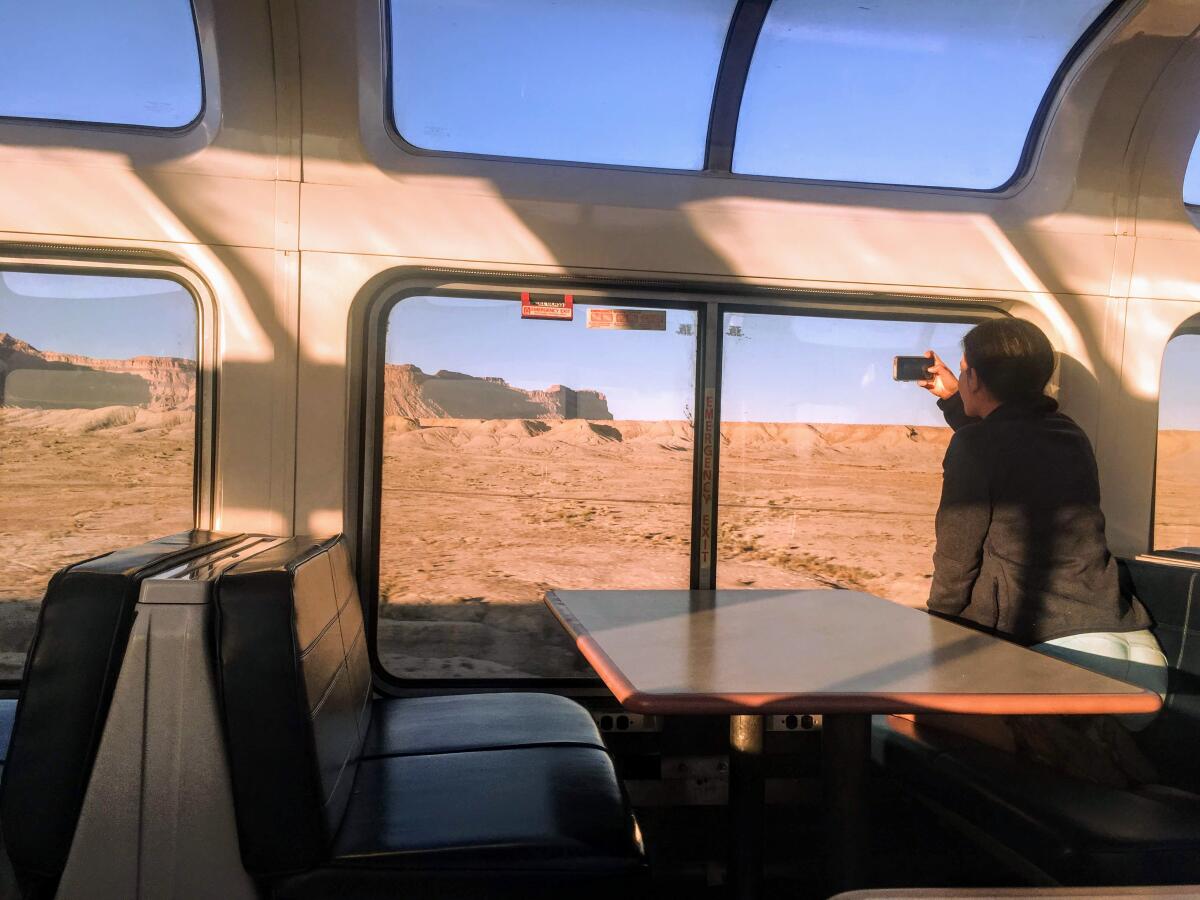
IF YOU GO
From LAX, one-way ticket to Denver starts as low as $69, and one way from Salt Lake City to LAX starts at $105. Basic economy will be lower.
A one-way ticket from Denver to Glenwood Springs on the California Zephyr begins at $46, and a one-way ticket from Glenwood Springs to Salt Lake City begins at $42. amtrak.com
More to Read
Sign up for The Wild
We’ll help you find the best places to hike, bike and run, as well as the perfect silent spots for meditation and yoga.
You may occasionally receive promotional content from the Los Angeles Times.


